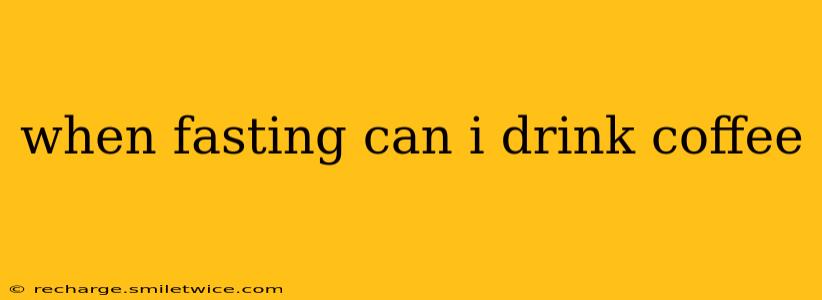Intermittent fasting (IF) has gained immense popularity as a weight management and health optimization strategy. But one question frequently arises: Can I drink coffee while fasting? The answer isn't a simple yes or no, and depends largely on your specific fasting goals and the type of IF you're following. Let's delve into the nuances.
What is Intermittent Fasting?
Before we address coffee consumption, it's crucial to understand intermittent fasting. It's not a diet in the traditional sense, focusing instead on when you eat, rather than what you eat. Popular methods include the 16/8 method (fasting for 16 hours, eating within an 8-hour window) and the 5:2 diet (eating normally for five days, restricting calories on two non-consecutive days). The core principle is cycling between periods of eating and voluntary fasting.
Does Coffee Break My Fast? The Calorie Debate
The primary concern surrounding coffee and fasting is calorie intake. Black coffee, without added cream, sugar, or other caloric ingredients, contains negligible calories. Therefore, many proponents of intermittent fasting consider black coffee acceptable during a fasting period because it doesn't significantly impact blood sugar levels or trigger insulin release, processes that would end the fasting state.
What About Additives?
This is where things get tricky. Adding cream, sugar, milk, or flavored syrups significantly increases the caloric content and can break your fast. These additions introduce carbohydrates and fats, stimulating insulin production and negating the metabolic benefits of fasting. Therefore, sticking to black coffee is key if you're aiming to maintain a true fast.
Does Coffee Affect My Fasting Hormones?
While black coffee is low in calories, it does contain caffeine. Caffeine can influence hormones and potentially affect the metabolic processes associated with fasting. Some studies suggest that caffeine might slightly increase metabolism, which could be beneficial for weight loss, but more research is needed to definitively confirm this impact on fasting. The effect is likely minimal compared to the impact of caloric intake.
Can I Drink Coffee During Extended Fasts?
For longer fasts, such as those lasting 24 hours or more, the potential effects of caffeine should be considered. While small amounts of caffeine are generally considered acceptable, excessive caffeine intake might interfere with sleep and increase stress, which could negatively affect your body's response to fasting.
What About Bulletproof Coffee?
Bulletproof coffee, a popular trend involving blending coffee with butter or oil, is definitively not considered fasting-friendly. The added fats and calories significantly disrupt the fasting state.
Other Frequently Asked Questions
Can I add artificial sweeteners to my coffee while fasting?
While artificial sweeteners are calorie-free, their impact on gut health and hormonal responses during fasting remains largely unstudied. Many practitioners recommend avoiding them to keep things simple and ensure a clean fast.
What if I experience hunger pangs while drinking black coffee?
Hunger pangs during a fast are normal. Drinking water or unsweetened tea can help mitigate these feelings. If the hunger is overwhelming, it might be a sign that you need to adjust your fasting window.
Will drinking coffee during fasting affect my weight loss?
Drinking black coffee is unlikely to significantly impact your weight loss efforts within the context of a well-planned intermittent fasting program. The focus should remain on overall caloric intake and adherence to your chosen fasting schedule.
In conclusion, the question of whether you can drink coffee during fasting largely depends on your approach to fasting and what you add to your coffee. Sticking to black coffee is generally acceptable, but always prioritize listening to your body and adjusting your fasting routine as needed. If you have any underlying health conditions or concerns, it's essential to consult your doctor before starting any intermittent fasting program.
